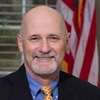Welcome to BARBRI, the trusted global leader in legal education. Continue to access the same expert-led Strafford CLE and CPE webinars you know and value. Plus, explore professional skills courses and more.
About the Course
Introduction
This CLE webinar will discuss when a nursing home, long-term care, or other healthcare facility can be liable for sexual abuse that happens to a resident or patient. The program will explore the duty to report and investigate, what defenses may be raised and which ones may be more likely to succeed, and the problem of understaffing. The panel will discuss how to obtain evidence of this type of abuse as well as criminal and civil remedies.
Description
Sexual abuse in nursing homes may be committed by staff, other residents, or even criminals who have broken into the facility. In addition to the abuser, the nursing home, its corporate owners, and any individual with a duty to report or prevent abuse are potentially criminally and/or civilly liable.
Any sexual act done by force, threat, or even by taking advantage of a resident's incapacity is actionable and may result in criminal or civil liability. Many of the residents in nursing homes may have physical or mental disabilities that compromise or prevent them from defending themselves from an assault or giving consent.
Facilities are obligated to train and supervise employees so that this type of horrible abuse cannot and does not happen. A nursing home may still be liable even if it was not directly at fault if it has engaged in negligent hiring, training, or retention.
Listen as this experienced panel discusses claims, defenses, statutes of limitation, damages, and other issues that are involved in determining if a nursing home or other healthcare facility can be liable for sexual abuse that happens to a resident or patient.
Presented By

Ms. Fisher's practice includes talc and asbestos products liability/toxic tort, medical malpractice, and general liability cases. Over her 27+ year career, she has defended hospitals, nursing facilities and physicians in medical malpractice claims arising in numerous medical specialties, including obstetrics, infectious diseases, geriatrics, cardiology, transplant, general surgery, orthopedics and plastic surgery. Ms. Fisher has also represented clients in Intellectual Property and Entertainment law, including review and negotiation of contracts, negotiating disputes related to wages and discrimination, and handling issues concerning the rights of privacy and publicity.

Ms. Peters focuses her practice in the areas of medical malpractice, personal injury, wrongful death, and other negligence claims. She has been named to The National Trial Lawyers: Top 40 Under 40 list, and earned a spot on Top Verdict’s “Top 100 Medical Malpractice Verdicts in the United States” in 2019.

Mr. Terry is the founder and lead attorney at Terry Law Firm, a law firm that focuses exclusively on nursing home abuse and neglect cases. He is a nationally recognized lawyer who has been pursing justice for those who have been abused and neglected by the nursing home industry for over twenty years. Mr. Terry is licensed in five states and has spent most of his career handling nursing home abuse and neglect cases all over the United States, although he now focuses his practice in Missouri and Illinois. He is “AV” rated by Martindale-Hubbell, a member of the Million Dollar Advocates Forum and Multi-Million Dollar Advocates Forum and has been recognized as a member of the Nursing Home Trial Lawyers “Top 10” list by the National Trial Lawyers Association. Mr. Terry has also received several Avvo Top Attorney awards for nursing home abuse and neglect cases.
-
This 90-minute webinar is eligible in most states for 1.5 CLE credits.
-
Live Online
On Demand
Date + Time
- event
Wednesday, April 10, 2024
- schedule
1:00 p.m. ET./10:00 a.m. PT
- Causes of action
- Statutes of limitation
- Insurance considerations
- Common defenses
- Damages
The panel will discuss these and other critical issues:
- Can institutions be liable if they did not know of prior bad acts or propensities?
- What happens if the abuse is discovered after the victim has died or moved out of the facility?
- How are parallel criminal and civil suits to be navigated?
- When is potential abuse foreseeable?
Unlimited access to premium CLE courses:
- Annual access
- Available live and on-demand
- Best for attorneys and legal professionals
Unlimited access to premium CPE courses.:
- Annual access
- Available live and on-demand
- Best for CPAs and tax professionals
Unlimited access to premium CLE, CPE, Professional Skills and Practice-Ready courses.:
- Annual access
- Available live and on-demand
- Best for legal, accounting, and tax professionals
Unlimited access to Professional Skills and Practice-Ready courses:
- Annual access
- Available on-demand
- Best for new attorneys
Related Courses

Apparent Agency Liability and Gig Economy Defendants: Critical Facts and Themes; Discovery Strategy; Dean v. Uber
Friday, April 10, 2026
1:00 PM ET/10:00 AM PT
Recommended Resources

Making Continuing Education Work for You, Anytime, Anywhere
- Learning & Development
- Career Advancement

Getting the Most Out of BARBRI Resources
- Learning & Development
- Business & Professional Skills
- Talent Development

